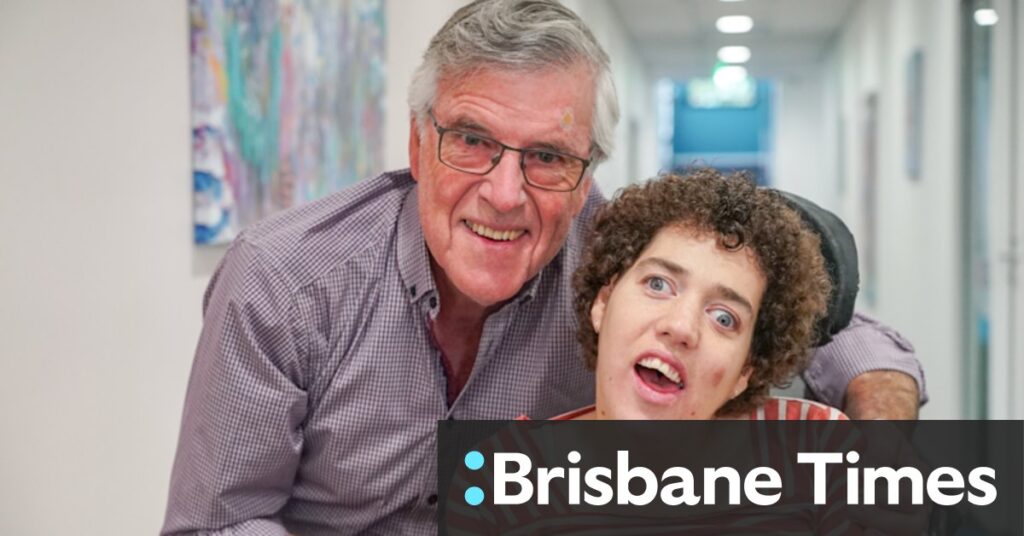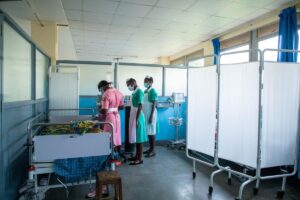
After three decades of advocacy, Meningitis Centre Australia founder and chairperson Bruce Langoulant sees irony in Western Australia’s landmarks, including Optus Stadium and Parliament House, being illuminated in purple this Sunday. The display coincides with World Meningitis Day, yet the state remains resistant to making the meningococcal B strain vaccine freely available, unlike Queensland, the Northern Territory, and South Australia.
Langoulant and his organization are entrenched in a lobbying battle to secure funding for the MenB vaccine in WA as the state records increasing cases of the disease. “It would be nice if the lights went on at Parliament House, but they made a decision too,” Langoulant remarked.
The Personal Tragedy Behind the Advocacy
Langoulant’s advocacy is deeply personal. His daughter, Ashleigh, contracted pneumococcal meningitis at six months old in 1989, before vaccines were available for any meningococcal strain. The infection left her with severe disabilities, including deafness and cerebral palsy. For over 36 years, Ashleigh has required constant care, a reality that propelled Langoulant to establish the Meningitis Centre and advocate for vaccine inclusion in immunization schedules.
“The best solution to it is vaccination. When our daughter got it, there weren’t any vaccines,” he explained. “We got started in ’92 because there was the first one coming for the Hib meningitis. There were 240 cases of meningococcal infection a year at the time. This vaccine wiped out 40 percent of them.”
Progress and Remaining Challenges
Langoulant’s efforts have seen success over the years. In 2003, he lobbied for the pneumococcal meningitis vaccine to be part of the national schedule, and in 2016, he achieved state coverage for the ACWY strains. However, the MenB vaccine remains the last hurdle in WA.
“The one that is affecting kids most, because there is this hole in the fence, is the B strain. The B strain is the most virulent, it is the most dangerous because families think they’ve got the vaccine, but it doesn’t include the B,” Langoulant emphasized. “Let’s shut the gate.”
According to the Department of Health, meningococcal disease is a bacterial infection of the blood or membranes lining the spinal cord and brain. It can also affect the throat, lungs, or large joints.
Current Situation and Government Stance
In 2025, eleven cases of invasive meningococcal disease have been reported in WA. In 2024, there were 13 cases with one resulting in death. The MenACWY vaccine is currently offered free to all children at 12 months and to year 10 students, with a catch-up program for adolescents aged 15 to 19 years.
However, the MenB vaccine, known as Bexsero, is only free for Aboriginal children up to two years old and those with certain medical conditions. Others must pay between $200 to $400 for a full course, a cost that deters many from vaccinating their children.
Despite the purple lights and public support, Preventative Health Minister Sabine Winton has not committed to adding the MenB vaccine to the free schedule. “MenB has been funded under the National Immunisation Program since July 2020 for Aboriginal and medically at-risk children. The program is demonstrating positive coverage for these vulnerable cohorts,” she stated.
“The Department of Health closely monitors all serious notifiable diseases and continues to provide Ministers with advice regarding the requirements relating to MenB and other strains,” Winton added. “We will continue to monitor the trends in relation to MenB and seek advice from experts about WA’s response.”
Looking Ahead
The illumination of WA’s landmarks in purple underscores the ongoing struggle for broader vaccine access. As Langoulant and the Meningitis Centre continue their advocacy, the question remains whether WA will align with other states in offering the MenB vaccine free of charge. The decision holds significant implications for public health, especially for families unable to afford the vaccine.
As the debate continues, the focus remains on protecting the most vulnerable and closing the gap in the state’s immunization program. The outcome of this battle could set a precedent for future health policy decisions in WA and beyond.






